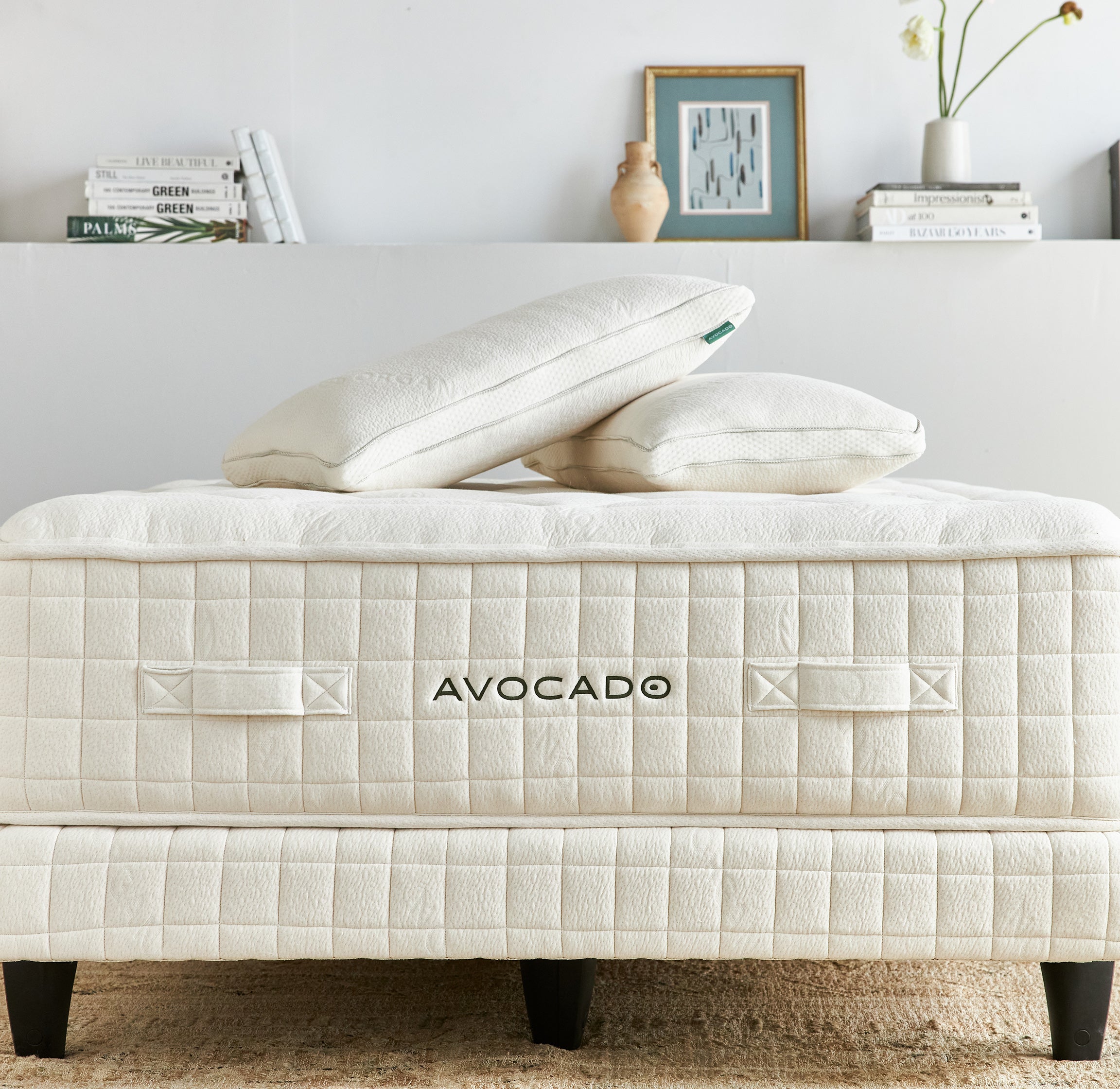PROPER SUPPORT FOR YOUR LUXURY PLUSH MATTRESS
Some bed frames require a foundation to support your mattress, and some sleepers prefer the added height they provide their bed. No foundation is quite like this. Our Luxury Plush Foundation uses solid wood and layers of natural materials: GOTS-certified organic cotton and wool, plus natural silk and a GOLS-certified organic coconut husk pad. These renewable add a luxurious, breathable touch that sets our foundation apart.


DURABLE POPLAR
Quality materials are built to last a lifetime. We use hardwoods that are strong and resilient for our foundations.

ORGANIC MATTERS
At Avocado, we only use GOTS-certified organic certified cotton, meeting the social and environmental expectations governed by the Global Organic Textile Standard.
BEYOND GREEN


ORGANIC WOOL
We use two GOTS-certified organic needle-punched wool layers in our Luxury Plush Foundation, sourced from the Himalayas. The wool dampens any sounds or vibrations and adds comfort and support. While some companies use synthetic, potentially toxic flame retardants, we use renewable, organic wool. Wool, besides being breathable and thermoregulating, is a natural fire retardant.

CLIMATE LABEL CERTIFIED
The Climate Label is a trusted mark of corporate climate leadership. Companies that earn the Climate Label have been verified as meeting high standards for climate performance, transparency, and accountability. Products and services from certified brands are developed and delivered with a focus on reducing greenhouse gas emissions over time. They have long-term climate targets backed up by immediate funding and actions.

ZERO WASTE
Avocado is always seeking innovative ways to be more sustainable — while never compromising the luxury feel of our products. In 2022, by being intentional about our materials and manufacturing, we expanded our production facility footprint from two to five while still increasing the amount of waste we diverted from landfills by 9%, achieving an overall waste diversion rate of 78%. Our goal is at least an 80% diversion rate. Read more about Project Zero Waste.

